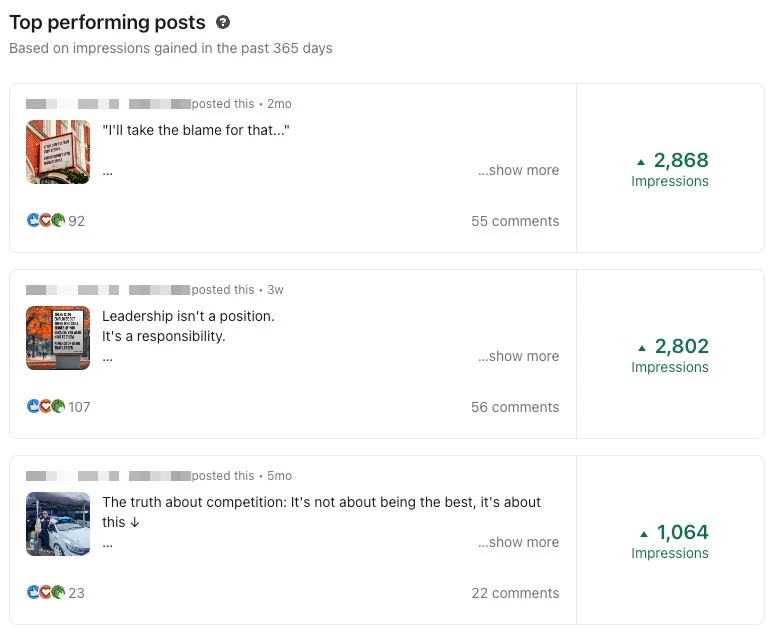Digital tools power the modern finance industry.
In fact, 80% of global financial businesses state that improving the quality of their digital experiences for customers is a crucial strategy. This is alongside another 80% of banks that are looking to accelerate their technological capabilities, signalling widespread uptake.
The key takeaway? The digital revolution has already begun, and it’s up to businesses to keep up.
One area that financial brands should be looking at in particular is digital communication, and how webinars for the financial services industry could better connect them to customers.
From generating new leads to enhancing brand authority, these remote seminars have simplified global reach.
Want to know more? We’ve got you. In this article, we’ll take a look at why webinars are so relevant within the finance industry and how SEO can help you get the most out of your online events.
What Are Webinars?
Webinars are basically the online version of seminars. A group of people come together using a digital platform (like Zoom, for example) to listen to a speaker – or speakers – discuss a specific topic.
In the world of finance, for example, you might host a B2B webinar on recent corporation tax changes or a B2C webinar discussing the relevance of cryptocurrencies in contemporary finance. Those are just a couple of off-the-bat ideas.
Rather than simply reading from a presentation in an hours-long monologue, financial services industry webinars focus on interactivity. Not only is it possible to see the host’s computer screen and follow their research or presentation, but there are also frequently:
-
- Question and answer sections
- Interactive polls
- An area to chat with other attendees
This dynamic way of sharing information makes webinars ideal for the finance industry, where clear communication is key.
When discussing complex topics, like legal regulations or tax, the ability to interact ensures the audience keeps up with the conversation, can pose questions, and stay engaged throughout. It also gives the host more feedback on whether all attendees have understood a certain topic, or whether a little more time is needed to explain the subject in further detail.
Webinars are an effective medium for educating clients, showing your thought leadership, and converting leads into paying customers by establishing clear competence in your field.
What Are the Benefits of Webinars for the Financial Services Industry?
Okay, so you know what a webinar is, but why is it important for financial businesses? We’ve dipped our toe into a few of the benefits already, but let’s take a look at what exactly you can gain from financial service industry webinars in closer detail.
Client Engagement and Education
If you’re looking to engage an intrigued audience, webinars are the way to go. You can use a variety of mediums to keep your leads hooked, from pre-prepared videos and presentations to interactive Q&As.
This isn’t just relevant to the topic at hand, either. By fully engaging your audience, you begin to nurture your leads, building relationships based on interactive discussions and a mutual interest in finance (be it from the business or the customer’s perspective). This strengthens trust, gives insights into your brand, and sows the seed that you’re a reliable business to work with.
Converting Leads into Clients
For attendees who have spent some time in your marketing funnel and are on the cusp of converting, webinars provide the perfect final digital touchpoint. You put a face to the business and give your leads a chance to talk with you directly.
You also have the chance to offer additional resources, talk about how you can help individual leads, and impress with your financial knowledge. Through these techniques, you clearly display your business capabilities and prove why you’re the right team for their financial needs.
Cost-Effectiveness and Reach
As an effective way of nurturing and converting leads, webinars are incredibly cost-effective. The fees and logistics associated with hosting a webinar are minute compared to in-person seminars and conferences.
You don’t have to rent a space, kit it out with branded goods, and provide catering for your attendees. Instead, a webinar can be as simple as members of your team on Zoom, with pre-prepared resources made by your business, making it simpler to organise and a whole lot cheaper.
The online nature of webinars also allows you to reach a global audience with ease. There are no issues around location and travel, making your event instantly more successful through the simple power of convenience.
The SEO Benefits of Financial Services Industry Webinars
At Woya Digital, we’re financial services SEO experts. So – of course – we’re going to look at webinars from an SEO perspective, analysing both their benefits for your existing SEO strategy and how SEO can boost your webinar’s reach.
First of all, let’s talk about the SEO benefits of webinars for the financial services industry.
Creation of Valuable Content
Webinars are classed as valuable content, meaning that they bring rich, in-depth information to your target audience.
You can then repurpose the information in your webinar in the form of transcripts, blog posts, and infographics. These are wonderful for showing off your relevance to specific topics and boosting your domain authority (DA), pushing you up the search engine results pages (SERPs) for greater visibility.
Increase Average Visit Time and Increase Engagement Time
By including your webinar on one of your web pages, you can keep them on your site longer whilst they watch your discussion. This should drastically increase your website’s average visit time, showing search engines that your audience finds what they’re looking for on your site.
You could potentially see this increase in engagement rates (fall in bounce rate – the number of users who click off your website without engaging), which is a well-known ranking factor.
Generate Valuable Backlinks
Link building (the strategy of securing links to your website from other websites) is a key aspect of SEO.
By publishing your webinars on your website after they’ve finished – alongside content generated to compliment your event – you create a valuable resource. This makes third parties more likely to link to your site or to share the content on social media, generating high-quality backlinks that pinpoint your financial business as authoritative and reputable.
Utilising Long-Tail Keywords
Long-tail keywords are more specific than short-tail alternatives, honing in on your niche target audience.
For example, a short-tail keyword might be ‘SEO services’. A long-tail keyword could be ‘SEO services for finance businesses’, which would have a lower search volume but be less competitive and far more targeted towards potential customers.
Your webinar content provides the perfect opportunity to utilise long-tail keywords relevant to the topic you’re discussing. This could see your site move up the SERPs, reaching a specific segment of your audience who are highly interested in what you have to offer.
Understand What Makes Your Audience Tick
The wonderful interactivity made possible through financial services industry webinars bridges the gap between you and your target audience. Why is this so important for SEO? Because it helps you learn what your leads are interested in.
By keeping an eye on the conversations going on between guests, the questions asked, and poll results, you gain a deeper understanding of the topics your audience wants to know more about.
Use this to guide future content (including blogs, social media posts, and podcasts) to boost the number of clicks and keep your leads hooked. The more interest your content generates, the higher up the SERPs you’ll go.
Compliance and Security Considerations
In the financial services industry, webinars must meet compliance and security requirements.
This includes data security. By using encrypted communication tools and following GDPR and The Data Protection Act (UK relevant), you can maintain privacy among your attendees. For example, if you’re storing any guest data, it’s important to protect it with firewalls and get rid of the information when it’s no longer relevant to your business.
It’s also smart to implement restricted access controls for your webinar, ensuring only authorised guests can join the discussion. Security measures like password protection and two-factor authentication can also boost safety.
Any financial data shared during webinars for the financial services industry should be compliant with UK laws and financial regulations. Knowingly promoting scams, misleading attendees, or sharing false financial information is a criminal offence under UK law.
Optimising Financial Webinars for SEO
If you’re hosting a financial services webinar, you’ll want to see the maximum number of people attending or visit on-demand. That’s where SEO and digital marketing comes in.
By using the same techniques that push your website up the SERPs, you can also better advertise your webinar and reach a wider, interested audience of potential attendees, which is especially good for on-demand webinars, as-live webinars or even basic reruns.
To help boost your numbers, here are some top SEO tips to help webinars for the financial services industry stand out:
Choosing the Right Topics
Your webinar needs to address a topic that resonates with your audience. You can pinpoint exactly what your leads want to hear about through:
-
- Analysing frequently asked questions
- Surveying your audience
- Looking at content that’s performed well for you in the past
- Keeping updated on industry changes
It’s also crucial that you research keywords as part of your topic creation. Understanding what your target market is actively searching for will guide the focus of your webinars.
On-Page SEO Strategies
Give your marketing material the best chance in the SERPs with on-page SEO. This includes:
-
- Optimising titles, descriptions, and metadata with keywords
- Sharing links to your content on social media
- Using press releases to gain social proof traction and essential backlinks
These strategies should be used for any content on your website that advertises your webinar, including blog posts and videos.
Post-Webinar SEO Strategies
We’ve already mentioned publishing your webinar once it’s taken place, but this is a point that’s worth repeating. Recorded webinars make wonderful evergreen content that can bring plenty of SEO value to your website, including boosting engagement analytics and providing opportunities for plenty of keywords.
Using specialist software to maximise the potential return with on-demand reruns can be amazingly effective with the least input. As-live webinars are particularly popular and allow you the opportunity to spread your ROI over multiple sessions.
Create additional content to support your financial services webinar SEO before and after it’s taken place. Blog posts, eBooks, and infographics are all wonderful ways to bolster the success of your webinars.
Tracking and Measuring Success
A crucial aspect of a successful SEO strategy is measuring your results. Track the analytics available for your webinar and related content, analysing:
-
- Attendees
- Engagement of your content
- Website traffic fluctuations
- Conversion rates
Understanding your data informs your next move, showing you what content caught the attention of your audience and how you can streamline your next webinar to align your business goals with what your potential clients are looking for.
Support With SEO for Financial Services Industry Webinars
Webinars for the financial services industry are an excellent way of bolstering your digital-first strategy, enabling communication with a wide reach. But, a webinar only works if you secure attendees.
Make sure your webinar marketing stands out with the help of our team at Woya. We have years of experience working on both long-term and standalone financial SEO campaigns, and pushing businesses up the search engine results pages.
From keyword research and optimised blog content to digital PR and Google Ads, we offer full-service financial SEO to put your webinar in the spotlight. Get in touch with our team and we’ll be happy to answer any questions or kickstart your webinar SEO.









